Introduction
Financial audits play a crucial role in maintaining the integrity of an organization's financial statements and ensuring compliance with regulatory standards. These audits involve a meticulous examination of financial records, transactions, and internal controls to verify their accuracy and identify any discrepancies or potential risks. In a rapidly evolving financial landscape, auditors must stay up to date with emerging trends and technologies, such as the integration of cryptocurrencies into balance sheets.
The importance of financial audits cannot be understated, as they are essential for investor protection, maintaining a transparent financial system, and supporting informed decision-making. However, the demand for skilled auditors is increasing while the pool of qualified professionals is diminishing, highlighting the need for expertise and precision in conducting these audits. In this article, we will explore the various types of financial audits, key responsibilities of financial auditors, the process of examining financial statements, and the benefits of financial audits.
We will also discuss how to prepare for a financial audit, assess internal controls, and implement changes based on the audit findings. Additionally, we will highlight the importance of professional guidance, training, and certification for financial auditors, as well as the career path and opportunities in this field.
What is a Financial Audit?
A financial audit, in essence, is a meticulous review of an organization's financial transactions, statements, and operations. Performed by an independent entity, the purpose is to verify the fidelity, accuracy, and adherence of financial data to both regulatory standards and accepted accounting principles. This process equips stakeholders with the confidence that the presented financial information is free from material misstatement and provides a reliable basis for decision-making.
To illustrate the meticulous nature of an audit, consider the analogy of analyzing a new project's structure. It is essential to discern whether the project's code is original or a derivative (a fork), and if it's a fork, to what extent it has been modified. This parallels the auditor's task of examining the organization's financial framework to ensure its authenticity and integrity.
The documentation, akin to an overview of a project's protocol, offers a comprehensive perspective, allowing auditors to assess the financial records with clarity and depth. This helps in identifying any discrepancies that may affect the organization's reported financial status.
Recent trends in the financial world, such as the integration of cryptocurrencies into balance sheets, underscore the evolving nature of financial audits. For example, fair-value accounting for cryptocurrencies is set to introduce increased volatility in reported earnings, yet simultaneously promises a more accurate reflection of a company's financial health.
Auditors must keep pace with these changes, ensuring their independence and objectivity, as highlighted by recent regulatory actions against firms that have compromised these values. The integrity of an audit and the importance of upholding rigorous standards cannot be understated, as they are crucial for investor protection and the maintenance of a transparent financial system.
Statistics reveal that the cost of audits is influenced by numerous factors, with S&P 500 companies witnessing an all-time high in average audit fees in FY2022. This underscores the significance and complexity of the audit process in today's financial landscape.

Key Responsibilities of a Financial Auditor
- Evaluating Project Structure: Auditors scrutinize the structure of financial projects, including distinguishing between original financial frameworks and those that have been adapted from others. They identify the primary functions utilized by users to ensure the integrity and effectiveness of financial operations.
- Analysis of Financial Data: Critical to an auditor's role is the meticulous examination of a company's financial statements. This involves a deep dive into balance sheets, income statements, and cash flow statements to assess aspects such as profitability, liquidity, and solvency.
- Forecasting and Investment Analysis: Auditors forecast future financial performance using historical data, statistical tools, and financial modeling. They provide investment advice by evaluating potential returns and risks associated with various investment opportunities.
- Regulatory Compliance: Ensuring a company's adherence to financial laws and regulations is a fundamental auditor responsibility. They proactively identify applicable laws and evaluate the company's compliance, understanding the material impact on financial statements.
- Performance Goals and Measurement: Auditors develop clear, targeted, and measurable performance goals for financial departments. This includes setting benchmarks for offices dedicated to innovation and supervising technological advancements in financial services.
These responsibilities are essential for maintaining the financial health and integrity of an organization and for supporting informed economic and investment decision-making.
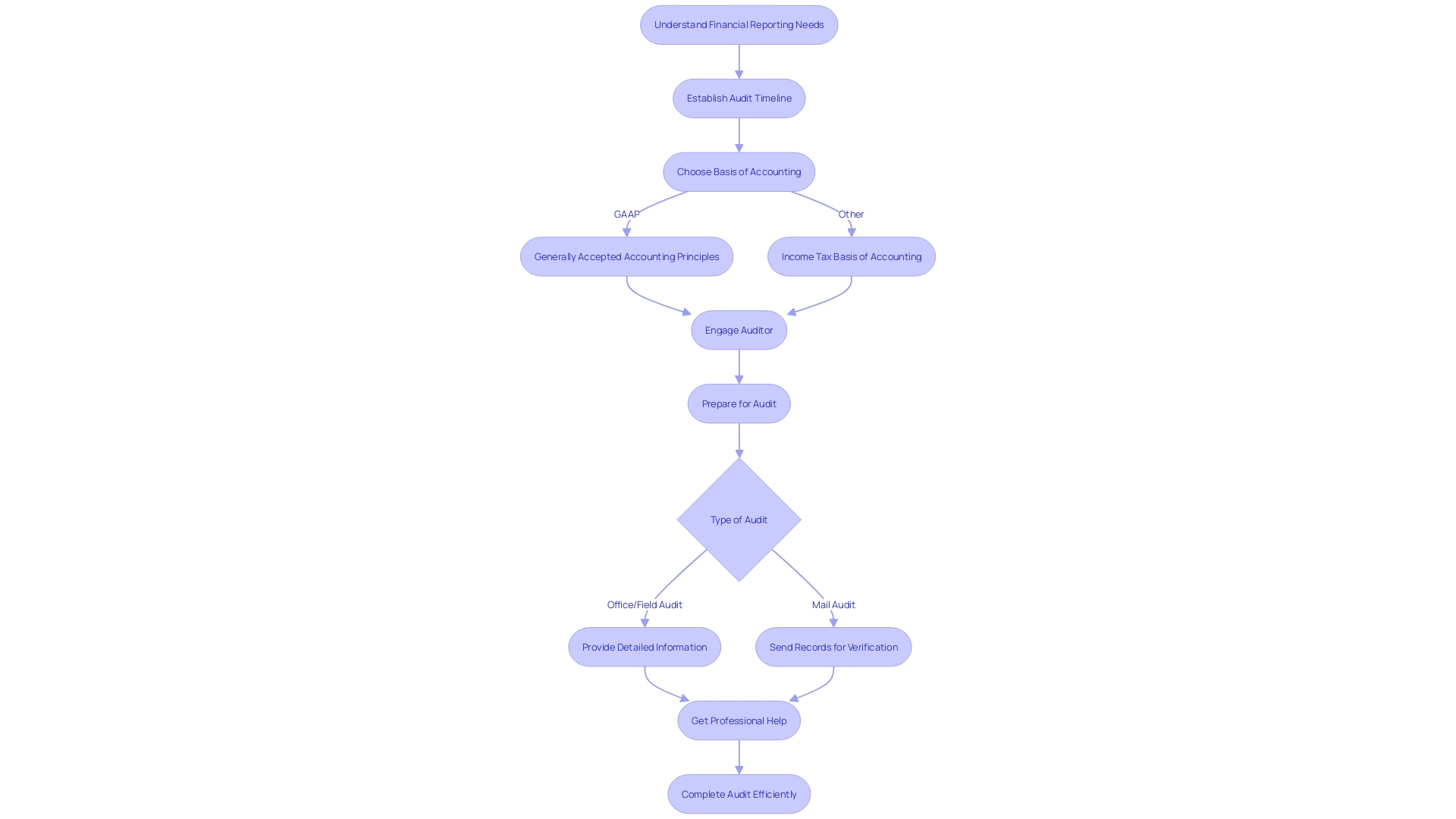
Assessing Internal Controls
Financial audits are crucial for maintaining the integrity of an organization's financial statements. For United Airlines, managing a vast network of operational technology across multiple hubs necessitates robust internal controls to protect against cyber threats and ensure asset safety. Similarly, Boerse Stuttgart's foray into the cryptocurrency market emphasizes the need for rigorous internal compliance controls to navigate AML and compliance challenges.
By leveraging the data insights provided by Chainalysis, the organization can make informed decisions while adhering to the stringent regulations that govern financial markets.
When approaching financial audits, it's essential to assess the efficacy of internal controls, as emphasized by Omar Choucair from Trintech, who underscores the foundational importance of precise financial reporting. An organization's ability to accurately reflect costs and interpret financial reports is paramount for ensuring the reliability of financial statements.
As Cristina Revelo points out, a thorough evaluation of how often controls are bypassed or manually overridden can reveal much about a company's compliance culture. Such an examination may also indicate whether internal controls require recalibration to better align with the organization's operational realities.
The European Union's Annual Report on the protection of its financial interests offers a stark reminder of the scale at which financial oversight is required. With more than 85 percent of EU expenditure managed by Member State authorities, the importance of establishing and verifying compliance standards cannot be overstated. As financial auditors, it is imperative to recognize areas most at risk of fraud and irregularities to ensure that action is effectively targeted, both at the EU and national levels.
The urgency of fraud prevention has been further highlighted by the COVID-19 pandemic, as government agencies rapidly deployed relief programs, presenting significant fraud opportunities. With estimates of fraud losses potentially in the hundreds of billions, financial auditors bear the responsibility of safeguarding not just individual organizations, but the broader economic landscape from such risks.
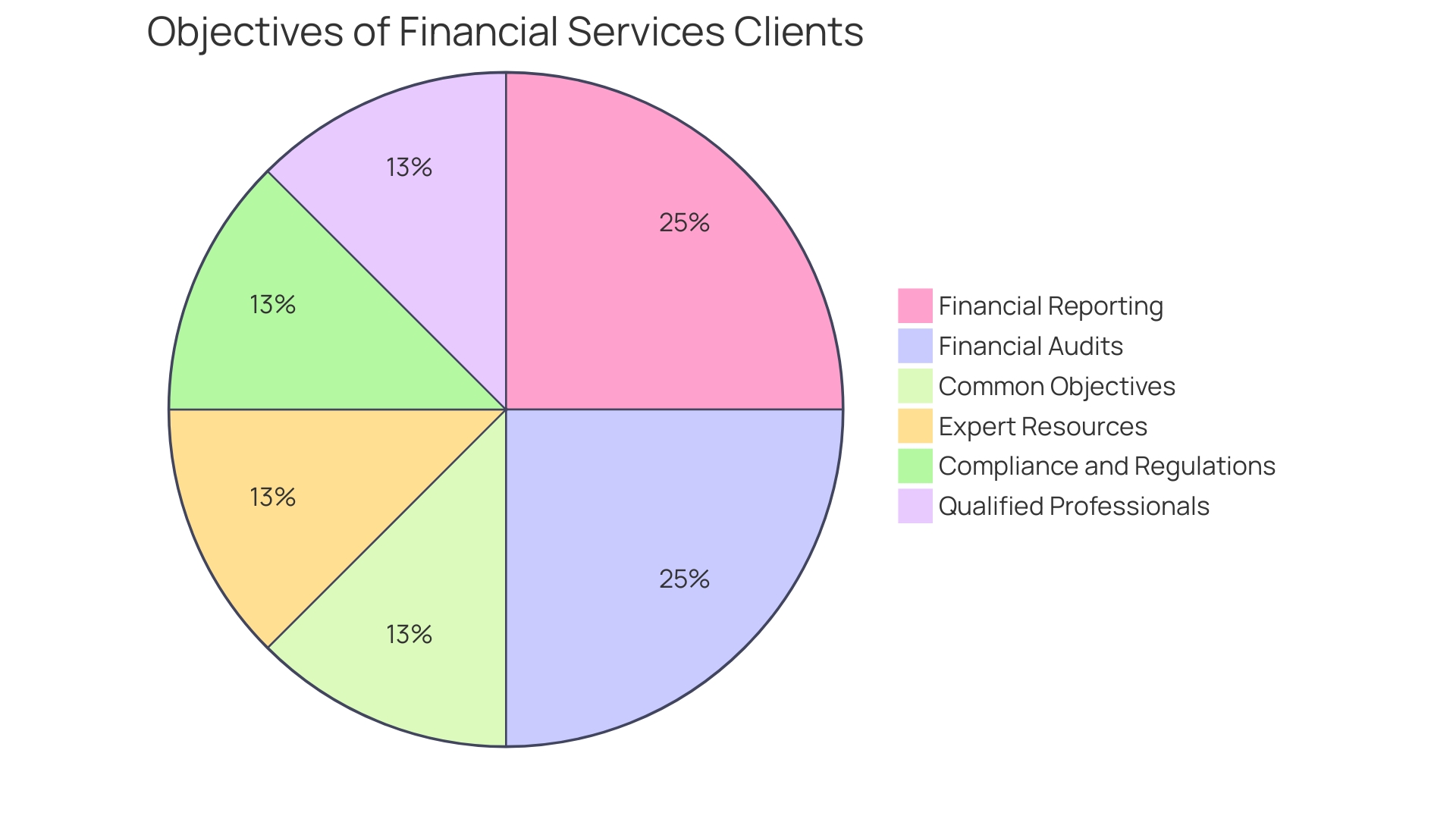
Examining Financial Statements
Financial auditing is an intricate process that involves a detailed examination of a company's financial statements to ensure they accurately reflect the business's financial position and comply with accounting principles and regulations. Auditors scrutinize the balance sheet, income statement, and cash flow statement, searching for any discrepancies that might indicate misstatements or deviations from standard accounting practices.
The balance sheet, revealing the company's assets, liabilities, and shareholders' equity, must balance as per the accounting equation. It's a snapshot of the financial health at a specific point in time. Similarly, the income statement captures the company's financial performance over a period, showing revenue, expenses, and net income.
The cash flow statement is equally critical, as it outlines the cash movements from operating, investing, and financing activities, offering insights into the company's liquidity and cash management. For example, a bank's reclassification of bonds from 'held to collect and sell' to 'held to collect' significantly impacts the cash flow statement, as seen in a real-world scenario where this shift led to a change in the reporting of bond values and net losses.
These financial statements tell a compelling story about the company's financial journey, and auditors are the interpreters of this narrative. They look beyond the numbers to understand the underlying business events, ensuring investors and stakeholders receive a transparent and accurate financial picture. The rigor applied in auditing these documents is paramount, as evidenced by the emphasis on quality reporting and the consequences of inadequate attention, such as financial restatements or material weaknesses in internal controls.
In essence, financial audits are not just about compliance but also about the integrity of financial storytelling that supports informed decision-making and contributes to the company's credibility and long-term success.
Testing Financial Transactions
The precision of financial audits hinges on exhaustive testing of monetary transactions to verify their authenticity, entirety, and accurate recording. For this meticulous process, auditors scrutinize a variety of supporting documents. They pore over invoices and receipts, and meticulously analyze bank statements to ensure that every entry reflects actual financial activity.
This method echoes the principles outlined by Kahn et al., who stress the necessity of aligning data with relevant external benchmarks to confirm its integrity. Similarly, advances in technology, as reported by Chen et al., have led to the development of sophisticated software capable of detecting financial inconsistencies more rapidly and effectively than traditional methods. This software sifts through complex data sets, identifying suspicious patterns that could indicate fraudulent activities like money laundering.
Such innovations underscore the evolving landscape of financial scrutiny, where traditional documentation review is now bolstered by cutting-edge analytical tools, providing auditors with a more comprehensive arsenal to ensure the fidelity of financial records.

Identifying Risks and Weaknesses
Financial auditors serve as the sentinels of an organization's fiscal integrity, meticulously evaluating financial processes and systems to unveil potential risks and inefficiencies. Their forensic approach to auditing not only uncovers critical insights but also suggests actionable strategies to bolster internal controls and risk management practices. By dissecting a company's structure and examining its code—whether original or a derived fork—auditors can trace the top functions that users interact with, ensuring they operate as intended.
In a climate where regulatory bodies like the Public Company Accounting Oversight Board and the Securities and Exchange Commission intensify their scrutiny, the value of robust financial audits escalates. They are not just compliance tools but also strategic assets that reinforce investor confidence and uphold the capital markets. Despite the increasing demand for accurate financial reporting, the pool of adept professionals is dwindling, raising concerns over the quality and dependability of financial information.
Statistics from the OWASP Smart Contract Top 10 emphasize the significance of safeguarding against vulnerabilities, drawing parallels to the meticulousness required in financial audits. Similarly, audit fee trends from Ideagen Audit Analytics reveal the complexities and costs associated with maintaining high-quality audits, especially for large-accelerated companies such as those in the S&P 500.
Recent news underscores the consequences of inadequate financial oversight, with SAP's $220 million settlement to resolve bribery charges being a case in point. These developments reinforce the necessity for companies to invest in comprehensive, insightful audits that can pre-emptively address such risks, maintaining the company's reputation and financial health.
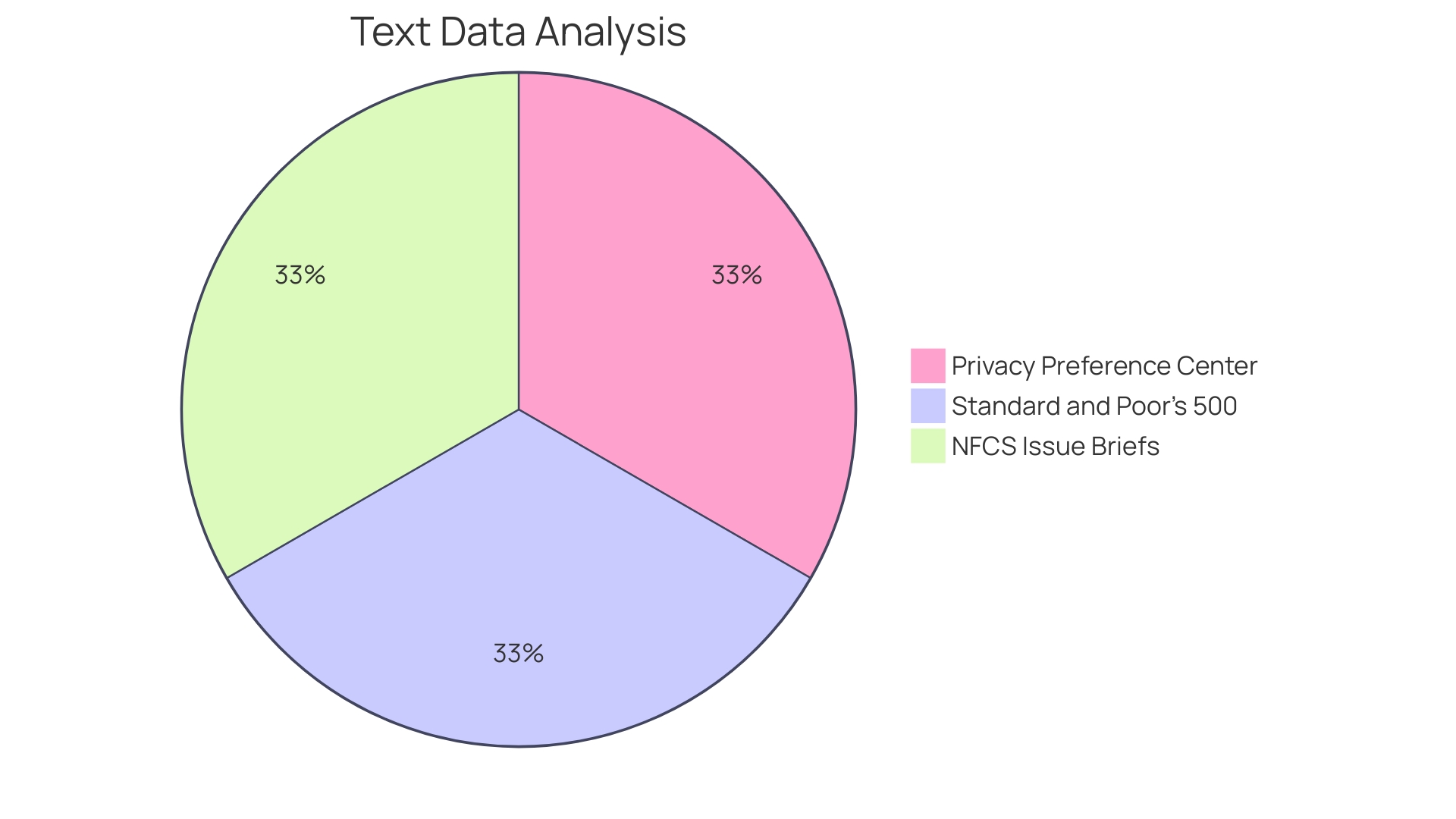
Types of Financial Audits
Financial audits are essential tools for ensuring the integrity of financial reporting, regulatory compliance, and safeguarding investor interests. Different types of audits serve various purposes:
- Internal Audits: Conducted by an organization's own internal audit team, these audits evaluate the effectiveness of internal controls, policies, and procedures. Their goal is to pinpoint areas that need improvement and confirm adherence to internal standards.
- InfoSec Audits: These are systematic examinations of an organization's information systems, processes, and controls, specifically from a cybersecurity perspective. They aim to assess the security measures' effectiveness, identify vulnerabilities, and verify compliance with relevant policies and regulations.
- Financial Statement Audits: These audits scrutinize a company's financial statements to ensure they are fair and accurate. They provide valuable insights into the business's performance and profitability, helping stakeholders make informed decisions.
The demand for insightful and accurate financial audits is growing, yet the pool of qualified professionals is shrinking, leading to a challenging environment where the quality and reliability of audits are more crucial than ever. This situation underscores the need for companies to invest in expertise and ensure that their financial audits deliver the dynamic and multifaceted analysis required for today's complex business landscape.
External Audit
External audits play a critical role in the financial oversight and transparency of an organization, involving an independent evaluation by auditors who are not affiliated with the organization being audited. These auditors meticulously examine the organization's financial records and operations to ensure that the presented financial statements are free of material misstatement and that the organization adheres to pertinent laws and regulatory frameworks.
The value of external audits is not limited to compliance but extends to enhancing the credibility of financial information, which is crucial for investors, stakeholders, and the general market. For instance, firms in the blockchain space, like ConsenSys Diligence, engage in comprehensive assessments of cryptographic tokens, which are fraught with technical risks and uncertainties, showcasing the importance of due diligence in emergent technologies.
In the dynamic landscape of global finance, entities must prepare for audits by understanding their specific financial reporting needs, including the applicable accounting principles—be it Generally Accepted Accounting Principles (GAAP) or other comprehensive bases like the income tax basis of accounting. This preparation is key to an effective and efficient audit process.
Recent industry developments highlight the significance of external assessments. For example, the DFINITY foundation, a major blockchain entity, underscores the importance of external security assessments by industry leaders such as Trail of Bits and NCC Group to complement their internal security measures. These practices not only bolster the security of their platforms but also offer valuable insights to improve their systems.
The importance of external audits is further reinforced by the perspectives of financial and accounting experts. Omar Choucair of Trintech emphasizes the fundamental necessity of accurate and reliable financial statements as the bedrock of sound financial reporting. Such assessments ensure that the complexities of modern financial operations are navigated with clarity and precision, safeguarding the interests of all stakeholders involved.
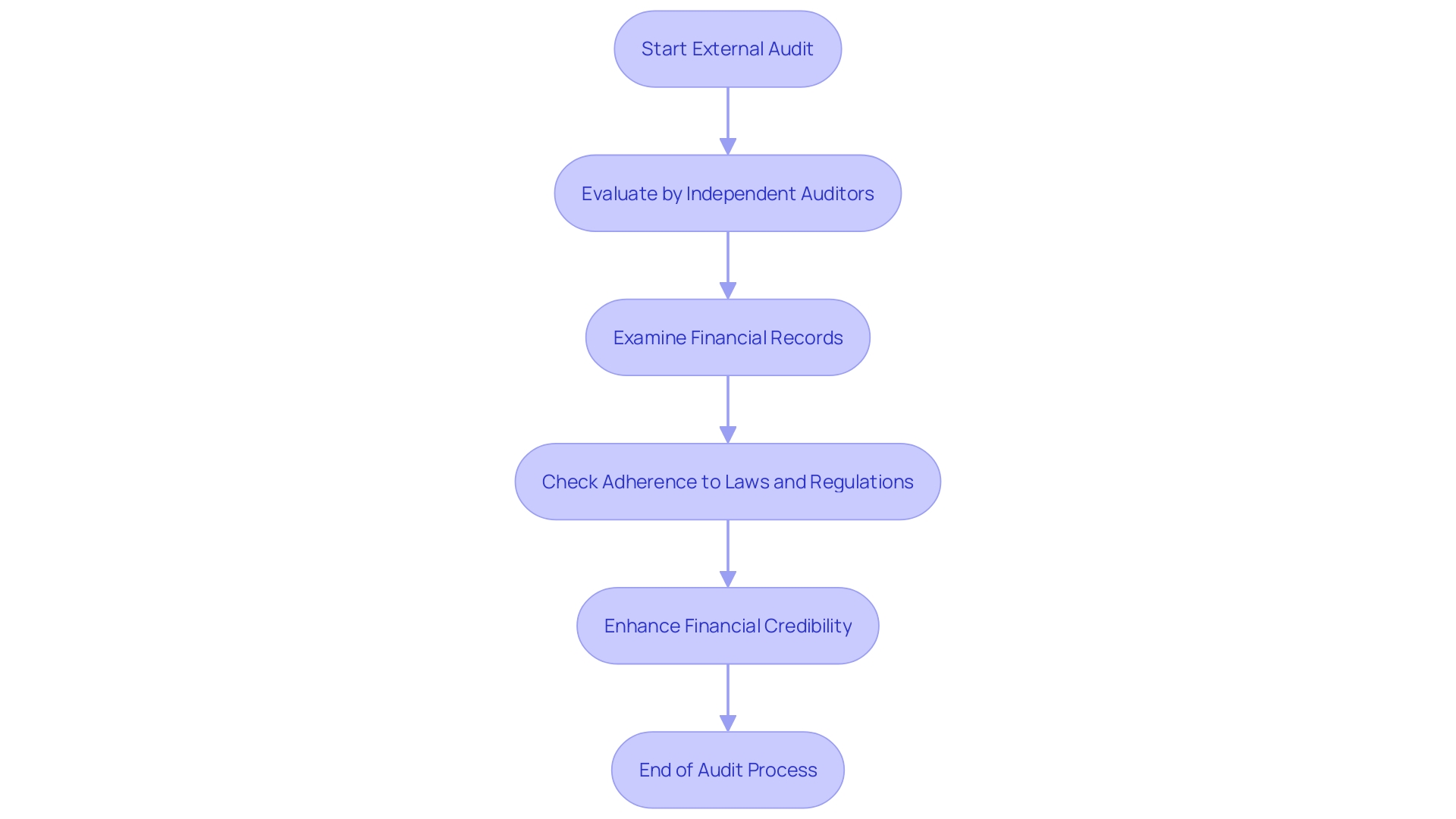
Internal Audit
Auditors embedded within an organization play a pivotal role in assessing and enhancing internal processes. They are charged with the critical task of scrutinizing internal controls, pinpointing areas ripe for improvement, and crafting actionable recommendations for the leadership team. Through rigorous evaluations, they unearth potential vulnerabilities and ensure that the company adheres to its established internal protocols and standards.
This process includes a comprehensive review of information systems, processes, and controls to ensure the integrity, confidentiality, and availability of sensitive data. The auditors' findings are instrumental in fostering a robust internal compliance framework, which is not only mandated by regulations like the FCPA but also serves as the backbone of an effective best practices compliance program. Their insights contribute to a deeper understanding of the business, helping to identify and manage risks and opportunities continuously.
A critical eye towards internal audits can lead to improved stakeholder relationships and the achievement of business objectives, ensuring the organization's operations align with its strategic vision.
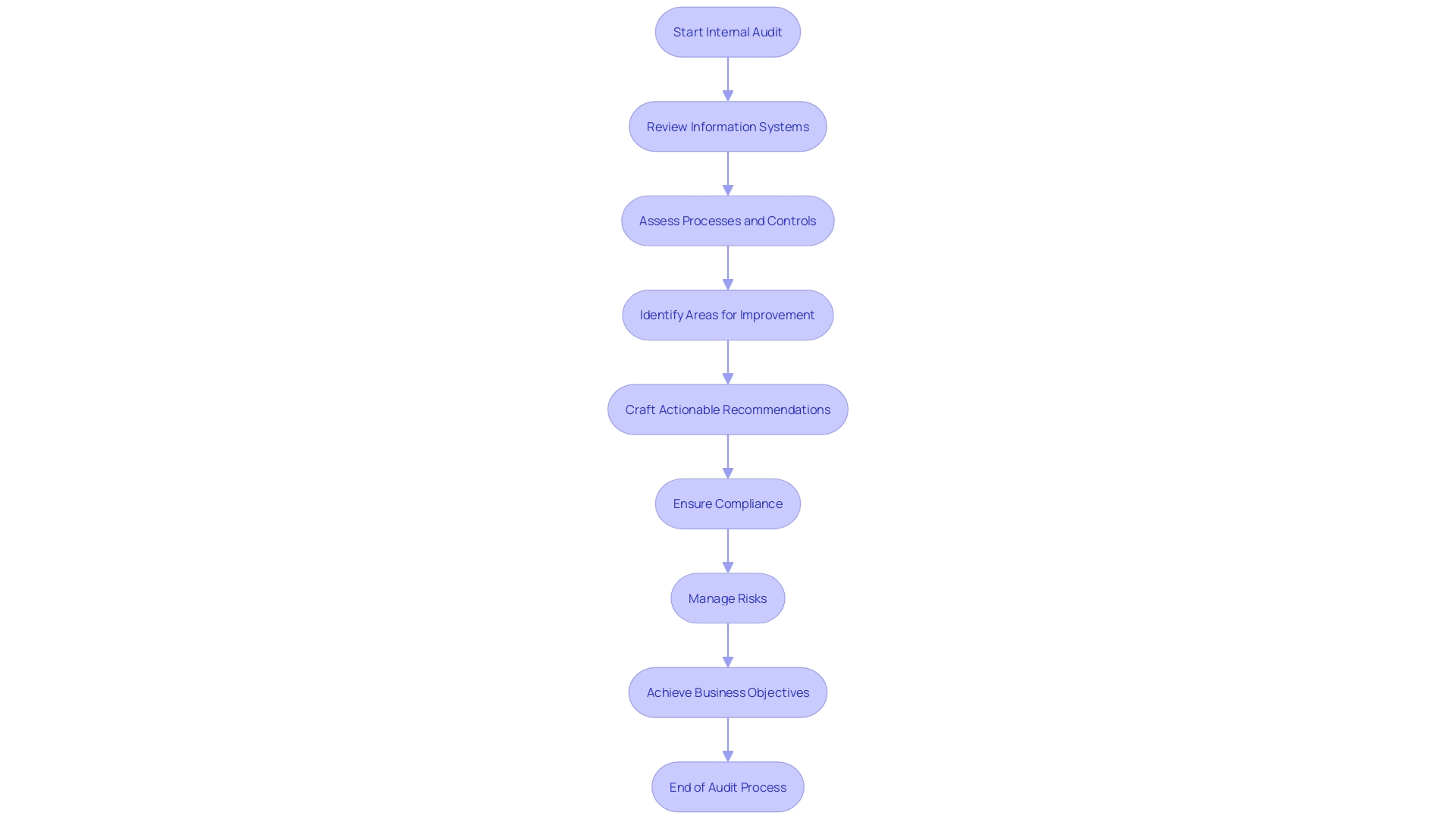
Forensic Audit
Forensic audits delve deep into financial records to uncover misconduct such as fraud or embezzlement. Unlike standard auditing processes, forensic audits require meticulous data analysis and a comprehensive review of evidence. They are particularly relevant in situations where fraudulent activities have become increasingly sophisticated, often involving complex transactions and advanced knowledge of a company's controls.
These audits play a critical role in legal proceedings, where they can inform investigations or serve as evidence.
For instance, law firm Challenge De Grandpré Chait encountered obstacles with cryptocurrency cases, necessitating the use of advanced software like Chainalysis to manage complicated transactions and transparency issues. Moreover, the Ontario Securities Commission's (OSC) examination of the Royal Bank of Canada (RBC) underscores the importance of a forensic audit's role in ensuring that costs associated with internally developed software (IDS) are accurately capitalized, per accounting standards, rather than being misrecorded as expenses.
As fraud detection becomes more challenging due to the volume and complexity of financial data, the critical eye of a forensic auditor is essential. The expertise of professionals like Dr. Weber, a forensic accountant and Certified Fraud Examiner, is invaluable in both educational and practical contexts, preparing the next generation to combat financial misconduct.
The need for such rigorous analysis is further supported by the 2024 Report to the Nations, which highlights over half of occupational frauds result from inadequate internal controls. With technology and data analytics playing an increasing role in detecting fraud, forensic audits are more important than ever in maintaining the integrity of financial statements and supporting the fight against financial crime.
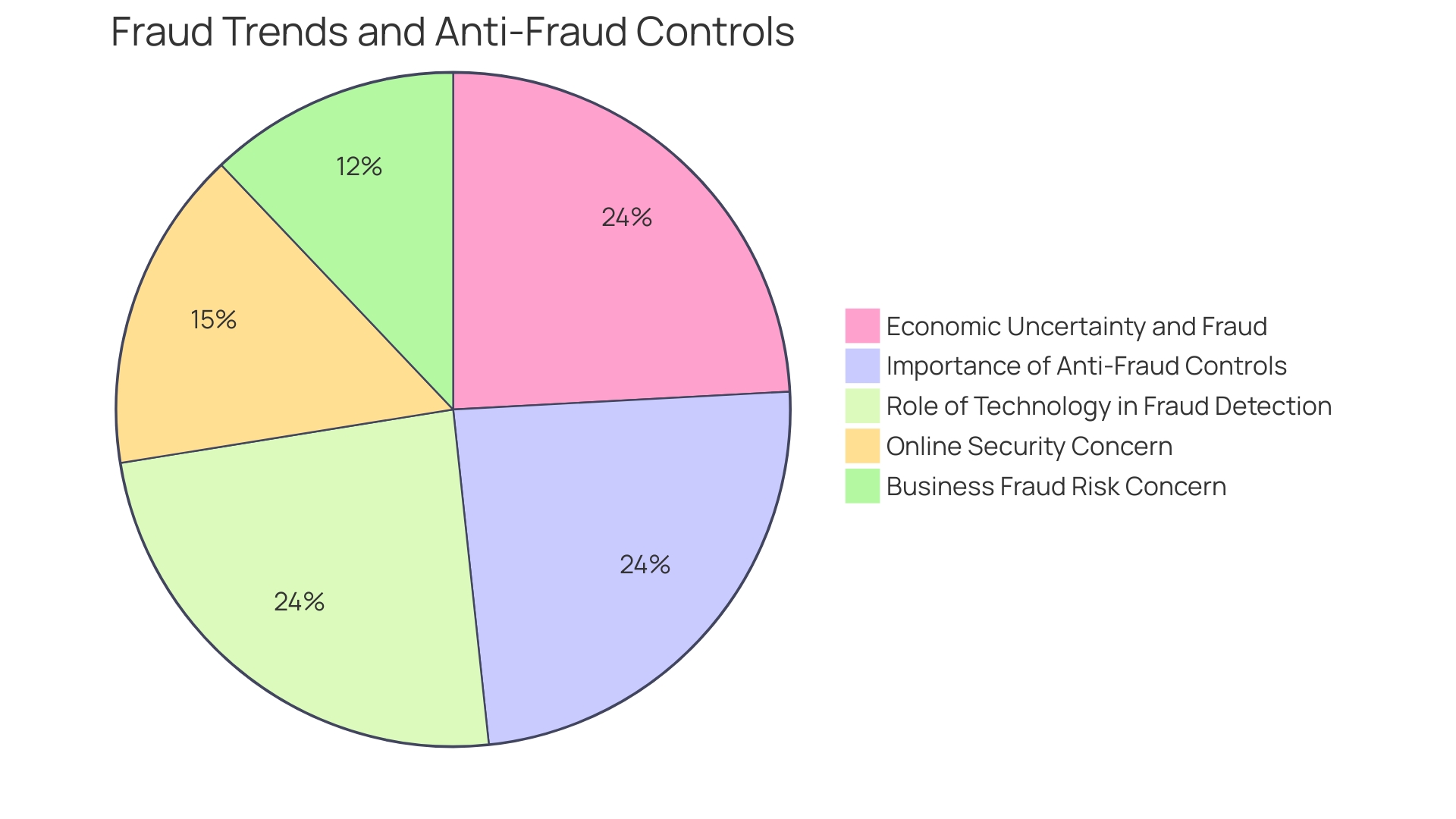
Benefits of a Financial Audit
Financial audits serve as a critical foundation for the integrity of financial reporting within any organization. They ensure adherence to regulatory compliance and protect investor interests—key concerns in the financial services industry, which has been trusted to Eide Bailly for over 75 years. For instance, M&T Bank, with its 165-year legacy, faced the challenge of digital transformation in the banking sector.
The shift towards digital customer experiences and the rapid adoption of new technologies heightened the need for stringent security measures and regulatory compliance to prevent security breaches and financial losses. In response, M&T Bank implemented Clean Code standards to enhance the quality and compliance of software code, a step towards mitigating the risks associated with digital transformation.
Similarly, the financial services industry is witnessing a demand for dynamic, multifaceted audits that provide actionable insights. This demand is coupled with heightened scrutiny from regulatory bodies like the Public Company Accounting Oversight Board and the Securities and Exchange Commission. The expertise required for such audits is becoming increasingly rare, creating a challenging environment where the need for reliable financial information is growing, yet the pool of skilled professionals is diminishing.
Moreover, the recent case with SAP agreeing to pay $220 million to settle bribery charges and the Sec's allegations against Prager Metis for violating auditor independence rules underscore the significance of maintaining robust audit practices. These instances highlight the complexities organizations face and the value of financial audits in upholding ethical standards and fostering investor confidence.
In summary, financial audits not only reinforce the reliability of financial statements but also act as a safeguard against regulatory penalties and reputational damage, making them an essential component of sound financial management and strategic decision-making.
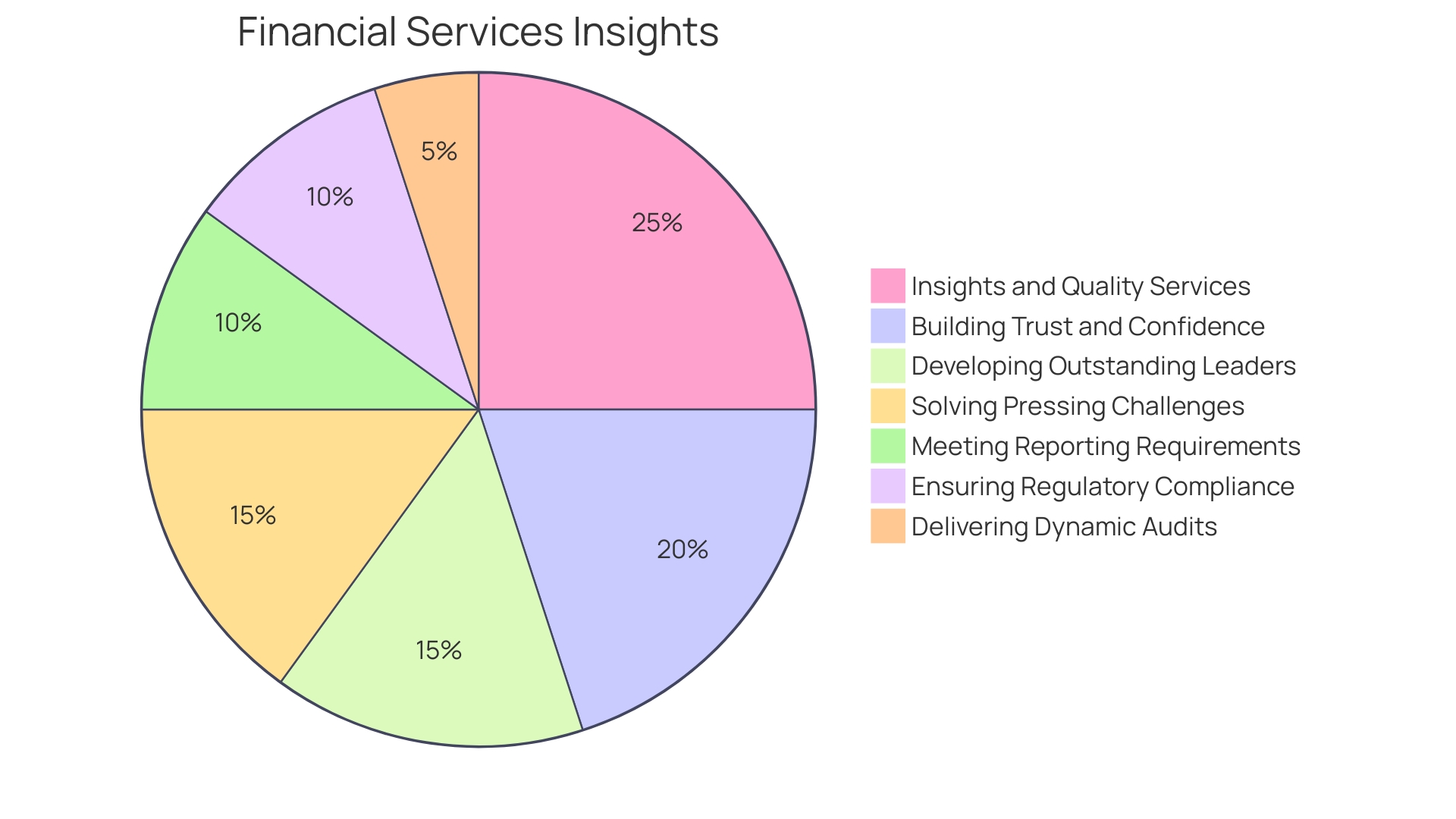
Enhanced Financial Transparency
Financial audits are essential not only for ensuring the accuracy of financial statements but also for maintaining operational efficiency and compliance with stringent regulations. These audits provide insights into the risk management strategies and internal controls of an organization. For example, M&T Bank, with its 165-year history, tackled the digital transformation challenges in the banking sector by setting Clean Code standards to ensure the maintainability of their software, thereby preventing financial losses and reputational harm.
This approach to maintaining high-quality standards is also critical in managing the supply chain and operations efficiently.
A thorough financial audit allows businesses to examine their response to market changes and technological advancements. Such was the case with companies navigating global transformations in energy and digitalization, where sustainability and economic value became pillars for their operations. Similarly, having a deep understanding of financial obligations and forecasting future revenues is imperative for long-term success, as suggested by recent business insights.
Moreover, almost 40% of CFOs globally express a lack of complete trust in their organization's financial data, according to research by BlackLine, Inc. This mistrust poses challenges for strategic decision-making, especially when over three-quarters of respondents fear another global financial crisis. To combat economic disruption, real-time access to financial data is crucial, yet 37% of CFOs admit to distrusting their own data.
These findings underscore the importance of regular financial audits in fostering trust and transparency among stakeholders, investors, creditors, and regulatory authorities, which in turn strengthens the overall financial stability of an organization.
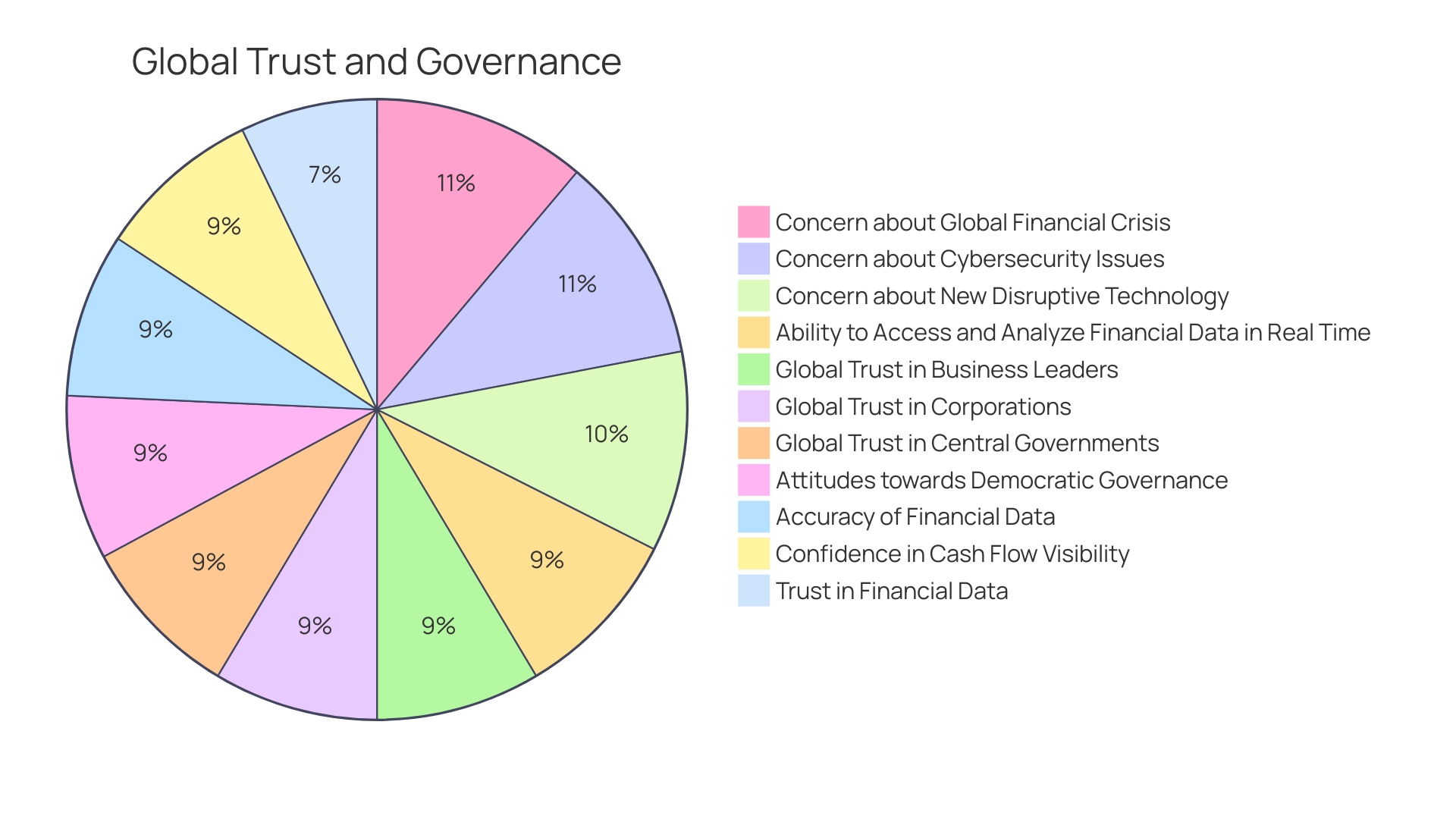
Improved Decision-Making
Audits are critical for uncovering discrepancies that could affect crucial investment decisions and strategic planning. Take, for example, the case of Glow, which relied on the integrity of financial audits to confirm the eligibility of participating solar farms. It was only through meticulous review and the innovative use of satellite imagery that auditors could identify false documentation, revealing a stark reminder of the potential for fraud within financial data.
This incident underscores the importance of due diligence and the need for auditors to employ a variety of tools and techniques to ensure the accuracy of financial information.
Moreover, the principle of responsible disclosure, as seen in the software industry, can be analogously applied to financial reporting. Just as software vulnerabilities are reported responsibly to prevent exploitation, financial inconsistencies should be disclosed in a manner that does not compromise the security or the reputation of the involved entities but ensures transparency and corrective actions. This approach safeguards stakeholders and maintains the integrity of financial data.
Omar Choucair of Trintech emphasizes the foundational requirement of clean books and accurate financial reports, which serve as the basis for reliable financial statements. It's through these meticulously scrutinized financial documents that management can strategically allocate resources, pursue investment opportunities, and plan for the future with a higher degree of certainty and insight. The role of financial audits in this process cannot be overstated, as they provide the verifiable assurance needed to navigate the complex and ever-evolving landscape of investment and risk management.

Detection and Prevention of Fraud
Financial audits are not just a formality but a vital component in safeguarding the financial health of any organization. By meticulously examining financial records and operations, audits are designed to uncover any discrepancies that could signal fraudulent activity or financial mismanagement. Through the lens of an audit, every transaction is scrutinized, every account balance is verified, and the legitimacy of financial practices is assessed.
This rigorous process is crucial in detecting complex schemes, as fraudsters often possess detailed knowledge of a company's systems and can thus embed their deceptive practices within the fabric of regular financial reporting. With the growing sophistication of financial statement fraud, traditional methods of analysis are being outstripped. The sheer volume and intricacy of financial data in today's business environment, replete with elaborate transactions and a myriad of subsidiaries, necessitate advanced tools for effective fraud detection.
An audit's preventative capabilities are also paramount. By identifying weaknesses in the financial framework, measures can be put in place to fortify against future risks, thereby fostering a more secure and transparent financial landscape. Ultimately, the goal of a financial audit is to ensure that the financial statements of a company are a true and fair reflection of its economic activities, providing stakeholders with confidence in the company's financial integrity.
Preparing for a Financial Audit
To pave the way for a precise and effective financial audit, it's essential to approach the preparation with a meticulous plan. Begin by evaluating your financial reporting requirements and determining the deadlines for submission. Documents such as operating agreements or loan contracts often stipulate whether your financial statements should adhere to Generally Accepted Accounting Principles (GAAP) or other frameworks such as the income tax basis of accounting.
Once you've established the foundation, delve into your project structure. Ascertain if the coding is original or a derivative of an existing one. If it's a forked code, assess whether modifications have been made and identify the primary functions utilized by users.
Superior documentation acts as an interpretive lens, offering a clear and comprehensive view of your project to the auditors. By constructing documentation in layers, you transition from an overarching perspective to the finer details, ensuring a coherent understanding of your financial landscape.
Knowledge of the audit type you're facing also plays a crucial role. An IRS mail audit might be a straightforward request for record verification, while office and field audits could demand an in-depth review and direct communication. In complex scenarios, securing professional assistance can be invaluable.
Amidst a backdrop of rigorous regulatory oversight and a shrinking pool of audit professionals, the stakes for accurate and independent financial audits have never been higher. With the Public Company Accounting Oversight Board and the Securities and Exchange Commission intensifying their scrutiny, it's critical to ensure that your financial audits are conducted with the highest level of expertise and autonomy. This necessity is underscored by recent developments, such as the significant settlement by SAP to resolve bribery charges and the Sec's allegations against Prager Metis for breaching auditor independence rules.
These cases highlight the importance of diligent preparation and the strict separation of accounting and audit functions to maintain the integrity of financial reporting and uphold investor confidence.

Organize Financial Records
Preparing for a successful financial audit involves meticulous organization of your financial records. It is essential to compile all pertinent documents such as bank statements, invoices, receipts, and payroll data. These records should not only be easily retrievable but also clearly categorized.
Employing a system like 'banker boxes,' which are secure storage units for files, can play a crucial role in keeping important documents safe and well-organized. The ability to reference specific items quickly by a clear labeling system can expedite communication with financial professionals and ensure accuracy during the audit process.
A bookkeeper, integral to any small business, will be heavily involved in this preparation. Their role encompasses more than just data entry; it is about crafting the narrative of a company's financial health through diligent record-keeping. As such, the bookkeeper's expertise in maintaining a comprehensive and precise ledger is invaluable for an audit.
Moreover, understanding the distinction between various financial reports is critical. A cash flow statement, for instance, is a pivotal component that tracks the movement of money within the business, highlighting operational efficiency and financial stability. It is complemented by the statement of retained earnings, which provides insights into shareholder value based on the company's financial decisions.
In today's digital age, the role of bookkeepers evolves beyond traditional tasks to include managing and interpreting financial data, a shift necessitated by advancements in artificial intelligence and automation. These professionals become custodians of financial integrity, helping businesses stay solvent, comply with legal requirements, and prepare for growth opportunities.
To illustrate the importance of organization and clarity in financial documentation, consider the case of a small business that successfully secured funding by presenting well-organized financial records. By having a clear overview of the company's finances, they demonstrated reliability and foresight, making them an attractive investment opportunity.
In light of these practices, it's also vital to stay informed about legal requirements, such as reporting cash transactions over $10,000 with Form 8300, which helps authorities track money from illegal activities. Ensuring compliance with such regulations is essential for maintaining a company's legal and financial standing.
As you embark on the audit preparation journey, reflect on the significance of each financial document and the story it tells about your business. With a robust system for organizing and maintaining financial records, you set the stage for a successful audit and pave the way for informed decision-making that will shape your company's future.
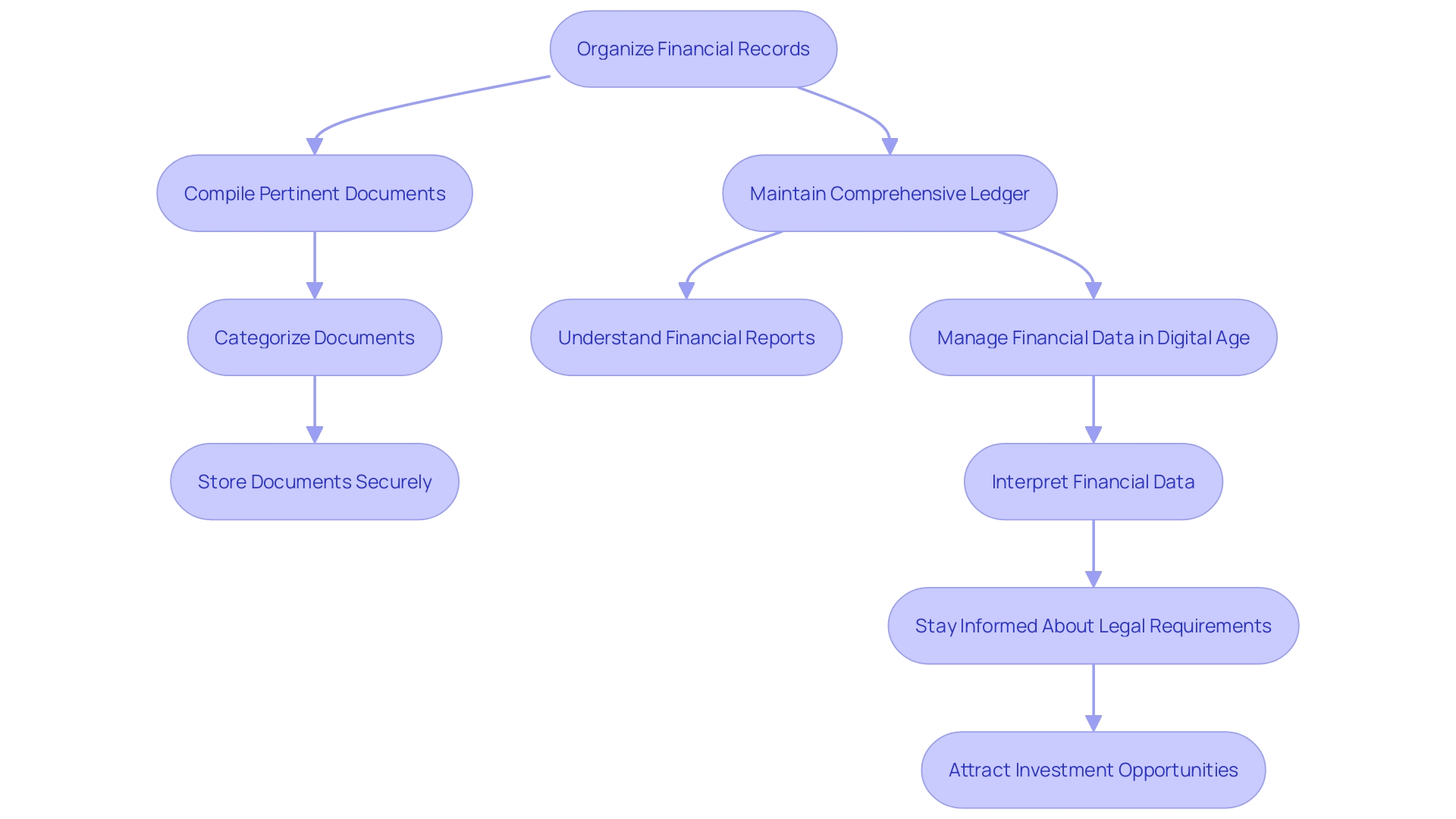
Review Internal Controls
To fortify your organization's defenses against financial inaccuracies and malfeasance, it is crucial to conduct a thorough evaluation of internal controls. This encompasses ensuring a robust segregation of duties to prevent conflicts of interest, establishing precise authorization procedures to safeguard against unauthorized transactions, and implementing rigorous access controls to secure financial systems from potential breaches. AT&T's historical challenges with entrenched systems and the frustration expressed in employee surveys underscore the importance of revisiting and updating these controls regularly.
Similarly, the experiences of Delivery Hero, where the IT service delivery team streamlined account recovery processes, highlight the benefits of removing barriers to efficiency. The Government Accountability Office's revision of the Green Book reflects a broader push toward strengthening internal controls, emphasizing risk mitigation in the face of fraud, cyber threats, and emergency program implementation. By integrating such comprehensive measures and aligning with best practices, companies can enhance their financial oversight and ensure the integrity of their operations.

Perform a Self-Assessment
Before the auditors arrive, it's crucial to conduct an in-depth self-assessment of your financial processes. This means meticulously examining your current systems and pinpointing any potential weaknesses or areas that might not align with compliance requirements. By tackling these issues head-on, you can mitigate the risk of compliance violations and enhance the integrity of your financial operations.
For instance, take a leaf from M&T Bank's book. As an established banking institution, they foresaw the need to set Clean Code standards to maintain and enhance performance and compliance in their software development. Similarly, ensuring that your financial code of conduct is up to par is a proactive measure to prevent costly and damaging consequences, such as security breaches or reputational harm.
Recent news highlights the significance of such preemptive measures, with the SFO identifying defects in evidence disclosure software, and proposals aiming to tighten auditor obligations regarding a company's compliance with laws. These developments suggest a landscape where meticulous self-assessment and proactive correction of issues are becoming more critical than ever.
This approach aligns with the broader perspective on the importance of financial audits as conveyed by industry experts: audits are not just a compliance exercise but a fundamental process that underpins financial integrity and investor confidence. As demand for reliable financial information grows, the expertise and precision in conducting these audits are paramount.
Therefore, understanding the timeline and requirements of your financial reporting, as stipulated in your entity's governing documents, is an essential first step. This knowledge allows you to manage deliverables effectively and ensures that your audit process is both efficient and effective, reflecting the best practices outlined by financial leaders and regulatory bodies alike.

The Audit Process
A financial audit is a multifaceted process designed to examine and verify the accuracy of an organization's financial records. It involves a thorough review of accounting books, financial statements, and compliance with regulations. This systematic evaluation is critical for ensuring that financial reports reflect a true and fair view of the company's financial performance and position.
There are various types of financial audits, each serving a specific purpose:
-
Internal Audits: These are done by the company's own internal audit team to assess internal controls and procedures, aiming to improve operational efficiency and adherence to internal policies.
-
External Audits: Conducted by independent auditors, these assessments provide an objective analysis of financial statements, ensuring they are free from material misstatement and comply with accounting standards.
-
Cybersecurity Audits: Given the rising importance of information security, these audits focus on the organization's information systems, examining the effectiveness of cybersecurity measures and identifying potential vulnerabilities.
The recent changes by the Financial Accounting Standards Board (FASB) underscore the evolving nature of the financial landscape. The unanimous vote to require companies to report significant crypto holdings at fair value reflects the need for updated measures of asset worth. This new rule will increase volatility in reported earnings for companies with large crypto investments but will also allow for recognition of financial gains from rising crypto prices.
In light of these developments and market expectations for a challenging economic period in 2023, businesses must be prepared to navigate a complex and volatile financial environment. With potential economic shocks and labor shortages on the horizon, the role of financial audits becomes even more critical for organizations to maintain confidence among investors and regulators.
Additionally, the pressure to comply with ever-changing regulations and guidance in the financial industry makes it paramount for companies to stay informed and adapt their audit processes accordingly. Expertise in auditing is essential, as the demand for reliable financial information grows amidst a decline in qualified professionals.
Planning Stage
The initial phase of an audit is a critical juncture where auditors gather essential information about the organization. It involves a thorough assessment of risks and the formulation of a strategic audit plan. Establishing the audit's scope is a pivotal step, pinpointing the key areas for a focused review.
For instance, an American client in Japan seeking to purchase Akiya property required a detailed audit to understand the financial implications and the extent of the project, ensuring a transparent and informed investment decision. This mirrors the meticulous approach needed in financial audits, where understanding the entity's financial reporting needs is essential. Organizations must ascertain their reporting deadlines and determine the accounting basis, whether it's GAAP or an alternative framework, as outlined in their governing documents.
Similarly, audits play a pivotal role in sectors like InfoSec and Cybersecurity, where they evaluate the systems, processes, and controls to ensure compliance and identify vulnerabilities. The structured examination is comparable to financial audits in its aim to uphold the integrity of information and maintain stakeholder trust. In the realm of cybersecurity, internal audits are a common practice, evaluating internal controls and policies to enhance organizational security postures.
Recent news highlights the significance of a resilient and well-resourced planning system in sectors like construction, where economic challenges are met with cautious investment strategies. Reflecting on the importance of robust planning, audits must adapt a systematic approach to facilitate transformative changes responsibly and effectively within organizations.
In essence, the planning stage of an audit is about laying a solid foundation, encompassing a comprehensive understanding of the entity's objectives, timelines, and regulatory requirements, to guide a focused and effective auditing process.
Fieldwork Stage
During the fieldwork phase of an audit, auditors delve into a comprehensive examination of financial records and transactions. They meticulously validate the financial data against supporting documentation, ensuring accuracy and adherence to established standards. The auditors also conduct interviews with key personnel, gaining insights into the operational processes and controls in place.
This stage is crucial for identifying any discrepancies or areas of risk that may impact the financial statements. The thoroughness of the fieldwork directly influences the credibility of the audit findings and, by extension, the trust stakeholders place in the financial integrity of the organization.
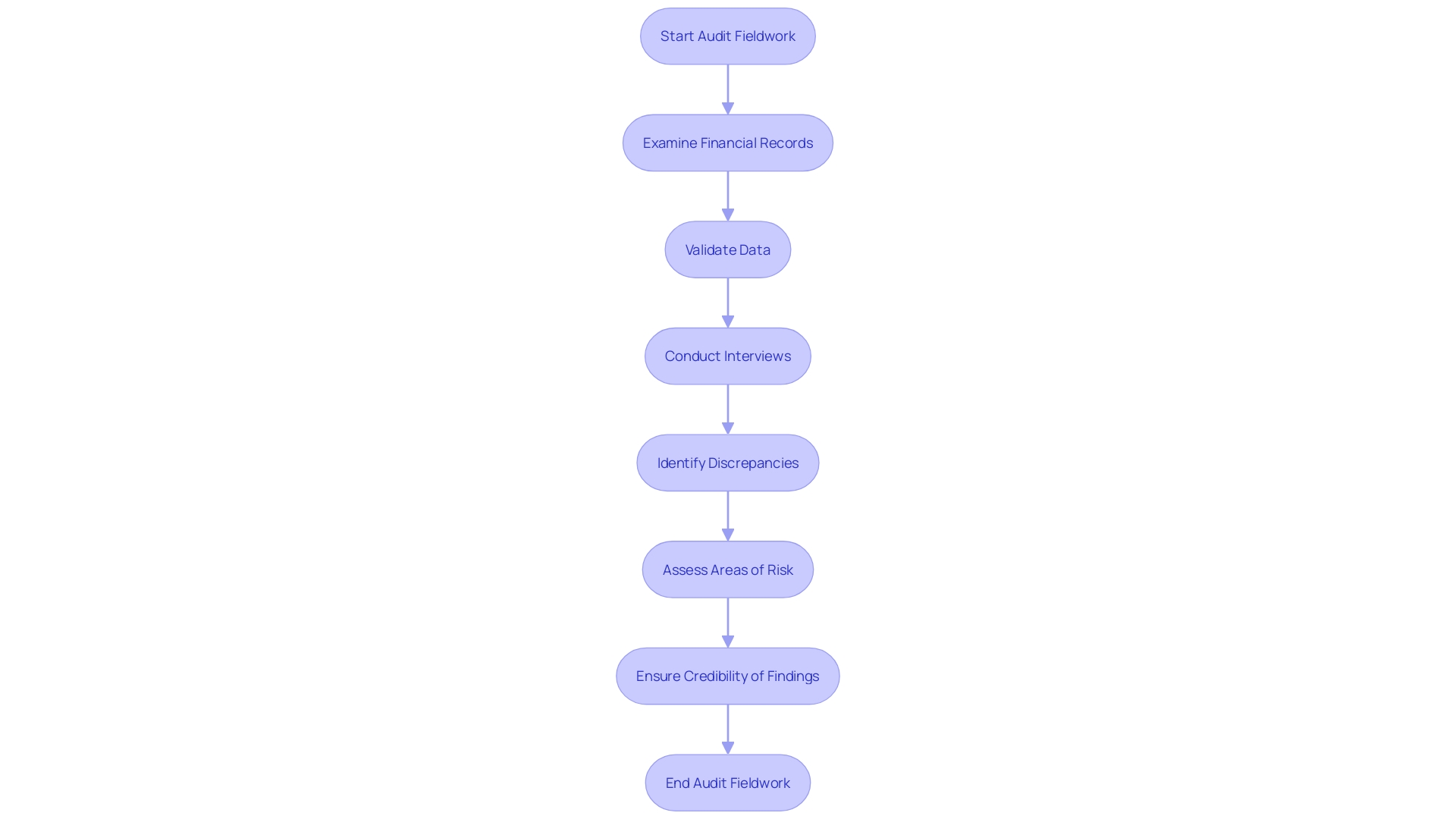
Reporting Stage
During the final phase of a financial audit, the auditor compiles their observations and insights into a comprehensive audit report. This document serves as a critical communication tool, providing management and other involved parties with a summary of the audit findings, including any identified discrepancies or areas of risk. It also outlines actionable recommendations for improving financial controls and operational efficiency.
This report acts as a cornerstone for ensuring transparency and accountability, laying the groundwork for future strategic decisions that align with regulatory standards and best practices.
During the Audit: Best Practices
Maximizing the advantages of an audit is not only about compliance but also about understanding and managing the underlying risks and complexities of your operations. To pave the way for a methodical audit process, it's critical to identify and assess your financial reporting needs. Determine the required basis of accounting—be it Generally Accepted Accounting Principles (GAAP) or another comprehensive basis like the income tax basis—and ensure you're aware of the deadlines stipulated in governing documents or by lenders.
Layered documentation is a cornerstone of audit preparation, offering clarity and detailed insights into your financial activities. Start with the foundational layer—your code or financial data—and build upwards, presenting information in a clear and structured manner to facilitate the auditor's understanding.
Furthermore, it's essential to align with modern audit standards, which now emphasize a shift from quality control to quality management. This involves a proactive risk-based approach to manage engagement quality, suitable for audit organizations of varying sizes and complexity. Embracing these standards ensures scalability and the achievement of the objectives of quality management.
In the fast-evolving landscape of technology and cryptocurrency, audits may focus on the technology behind blockchain or smart contracts rather than traditional financial aspects. Yet, the fundamental principles of transparency and trust remain unchanged. Utilize available resources such as CoinMarketCap or dedicated crypto project websites to research and verify the audits of blockchain-related projects.
Remember, an audit is not just a regulatory formality; it's a strategic tool that, when properly executed using best practices, can significantly enhance the credibility and operational efficiency of your organization.
Cooperate with the Auditor
For an audit to be successful, it is vital that the entity being audited fully comprehends their financial reporting requirements. This includes recognizing the accounting principles to be applied, whether they be the generally accepted accounting principles (GAAP) or an alternative comprehensive basis like the income tax basis of accounting. These details are often stipulated in the entity's governing documents or might be mandated by lenders within loan agreements.
To facilitate a smooth and effective audit, entities should engage in proactive communication with their auditors. This entails the timely provision of all necessary documents and information upon request. Responding swiftly to any inquiries or issues that arise during the audit process can prevent delays and misunderstandings.
Moreover, clear and organized documentation plays a crucial role in conveying the financial narrative of the entity. By presenting information in a structured manner, the entity assists auditors in understanding the business context and financial transactions, potentially leading to a more efficient audit.
Contemporary case studies highlight the importance of managing regulatory compliance and reporting across various jurisdictions, especially in relation to tax matters and government incentives. For instance, companies like SAP have faced substantial penalties for non-compliance with international regulatory standards, underscoring the stakes involved. Businesses must not only navigate the complexities of transfer pricing and indirect taxes such as GST and stamp duty but also ensure they are leveraging opportunities like research and development tax incentives effectively.
The insights drawn from these cases emphasize the significance of maintaining meticulous records and open communication lines with auditors, which can mitigate risks associated with regulatory scrutiny and enhance the overall audit experience.
Maintain Documentation
Maintaining meticulous records of all audit-related endeavors is paramount, from interactions with auditors to the underpinning documentation and any modifications in processes or controls. Imagine the documentation as a multi-layered structure where each layer represents a deeper dive into the details, providing clarity and understanding from the broad strokes down to the granular specifics. It's akin to peeling back the layers of an onion, starting with the outermost skin that offers a general overview, and moving towards the core, where the intricate details lie.
For instance, consider the transformation of the audit sector as new standards emphasize a shift from quality control to quality management, echoing a proactive stance on managing engagement quality. These evolving standards are designed to be scalable, catering to the varied sizes and complexities of audit organizations. By documenting each step of the audit process comprehensively, you align with modern best practices that focus on identifying and mitigating risks to ensure the highest quality of audit outcomes.
Furthermore, recent proposals advocate for auditors to take a more proactive role in identifying laws and regulations that could materially impact financial statements, underscoring the critical nature of comprehensive documentation. By keeping detailed records, you not only adhere to best practices but also prepare for an environment where proactive identification and evaluation of regulatory compliance is becoming increasingly essential. In essence, thorough documentation is not just a requirement but a strategic tool that enhances transparency and facilitates a better understanding of the audit process for all stakeholders involved.

After the Audit: Implementing Changes
When an audit concludes, it's not just the end of an assessment period but the beginning of a critical phase for enhancing operations. Let us take M&T Bank as an illustrative example—they recognized the necessity to set Clean Code standards to support their software's maintainability and performance amidst a digital overhaul in the banking sector. Similarly, after an audit, an organization should act decisively on the auditor's findings.
Actions may include revising existing processes to ensure they are efficient and secure, much like the Ford Foundation's implementation of a new video accessibility plugin to address evolving needs.
The significance of these improvements aligns with a study published in 'Accounting, Organizations and Society,' which determined that audit firms, anticipating higher inspection risk, increased their efforts, enhancing overall audit quality. The findings of more than 20,000 company-year observations suggest that a proactive response to audit outcomes is not just a regulatory necessity but a strategic advantage.
Furthermore, as the IRS emphasizes in Publication 5708, the creation of a Written Information Security Plan (WISP) underlines the importance of having well-documented, compliant, and actionable strategies in place. This is not merely about meeting legal requirements but about safeguarding the organization's data integrity and customer trust.
Embracing a culture of continuous improvement in response to audit findings is essential. Whether it's through the development of infrastructure-as-code modules to ease transitions, as suggested by the cybersecurity community, or the strategic investment in pre-issuance reviews mentioned in the FY23 Audit Quality Report, the goal remains the same: to fortify the organization's resilience against risks and to maintain a trajectory of growth and compliance.
Importance of Professional Guidance
Delving into financial audits requires meticulous attention to detail and an understanding of the intricate regulations and practices that govern them. Leveraging the expertise of seasoned auditors or advisory firms can be instrumental in navigating these complexities. As exemplified by Certora's partnership with Aave, a detailed review of project structures and contract interactions can unveil insights into formal verification processes that enhance security protocols.
Additionally, Gofaizen & Sherle's comprehensive consultancy services demonstrate the value of strategic preparation, including defining mission statements, client demographics, and service offerings tailored to unique market segments. This approach aligns with the understanding that a one-size-fits-all strategy is insufficient in the dynamic financial landscape, where risk tolerance and investment objectives are highly individualized. By preparing thoroughly for discussions with financial professionals, and recognizing the different audit types—be it a straightforward mail audit or a more in-depth field audit—organizations can equip themselves to provide the necessary documentation and information, facilitating a smoother audit experience.
Embracing the guidance of financial experts can lead to audits that not only comply with regulatory standards but also provide actionable intelligence to drive organizational value and investor confidence.
Training and Certification for Financial Auditors
To excel as a financial auditor, one must delve deeply into the intricacies of financial regulations and compliance. Obtaining certifications such as Certified Internal Auditor (CIA) or Certified Public Accountant (CPA) is not merely a matter of enhancing one's resume; it is a commitment to the mastery of complex financial landscapes and an indication of one's dedication to maintaining the highest standards of financial reporting and integrity. These certifications, recognized and respected across the globe, serve as a testament to an individual's expertise and adherence to a stringent code of ethics, ensuring that they are equipped to navigate the ever-evolving financial terrain.
As the demand for proficient auditors escalates amidst a backdrop of rigorous scrutiny from regulatory bodies and a dwindling pool of qualified professionals, these certifications become even more pivotal. They are the cornerstone that supports the delivery of incisive and insightful audits, vital for organizations that rely on accurate financial information to inform strategic decisions and uphold investor confidence.
Career Path and Opportunities for Financial Auditors
The demand for financial auditors is surging, driven by the need for heightened financial transparency and adherence to regulatory standards. This burgeoning field offers ample opportunities for career growth, attracting professionals adept at scrutinizing financial records for accuracy and compliance. Auditors play a pivotal role in various industries, with their expertise being crucial for organizations across the spectrum to maintain integrity and trustworthiness in their financial dealings.
The interdisciplinary nature of accounting education bolsters an auditor's capabilities, allowing them to work seamlessly with colleagues from different departments. This versatility is highlighted by one professional's take: "An accountant, by training, often collaborates with professionals from marketing, operations, human resources and more. This equips them with a unique perspective and an ability to bridge various business functions."
Furthermore, forensic accountants, who delve into the intricate details of financial records to unearth fraud and discrepancies, are akin to detectives in the financial realm. Their meticulous analysis is indispensable for legal proceedings, protecting businesses from financial harm and ensuring justice.
In the rapidly evolving business landscape, the Global State of Business Analysis Report reveals key trends, indicating a shift in the predominant age group of professionals from 25-35 to 36-45 years old. This insight, derived from a survey of over 4,400 professionals across 165 countries, underscores the dynamic nature of the industry.
As the financial sector continues to expand and diversify, the role of auditors becomes increasingly critical. With industries like healthcare, IT, and renewable energy experiencing significant growth, the need for skilled auditors to ensure financial integrity is more important than ever.
Conclusion
Financial audits are vital for maintaining the integrity of financial statements, ensuring compliance, and protecting investor interests. Auditors play a crucial role in evaluating project structures, analyzing financial data, and forecasting future performance. They also assess internal controls, scrutinize financial statements, and detect potential risks and weaknesses.
The precision of financial audits relies on exhaustive testing of transactions, leveraging advanced software and scrutinizing supporting documents. Different types of audits, such as internal audits and financial statement audits, serve specific purposes and contribute to maintaining transparency and accuracy in financial reporting.
External audits enhance the credibility of financial information and reinforce investor confidence. They provide an independent evaluation of financial records and operations, ensuring compliance with regulations and maintaining transparency.
Financial audits offer numerous benefits, including enhanced financial transparency, improved decision-making, and detection and prevention of fraud. They are crucial for organizations to navigate the evolving financial landscape, comply with regulations, and make informed strategic decisions.
Preparing for financial audits involves evaluating reporting requirements, organizing financial records, and reviewing internal controls. Cooperation with auditors, maintaining documentation, and implementing changes based on audit findings are essential for a smooth and effective audit process.
Professional guidance, training, and certification are vital for financial auditors to excel in their roles. The demand for skilled auditors is growing, offering diverse career opportunities in various industries.
In conclusion, financial audits are indispensable for maintaining the integrity of financial reporting, ensuring compliance, and safeguarding investor interests. Auditors play a crucial role in conducting these audits, enabling organizations to navigate complexities, enhance transparency, and make informed decisions. By following best practices and embracing professional guidance, organizations can ensure accurate financial reporting and foster trust among stakeholders.




